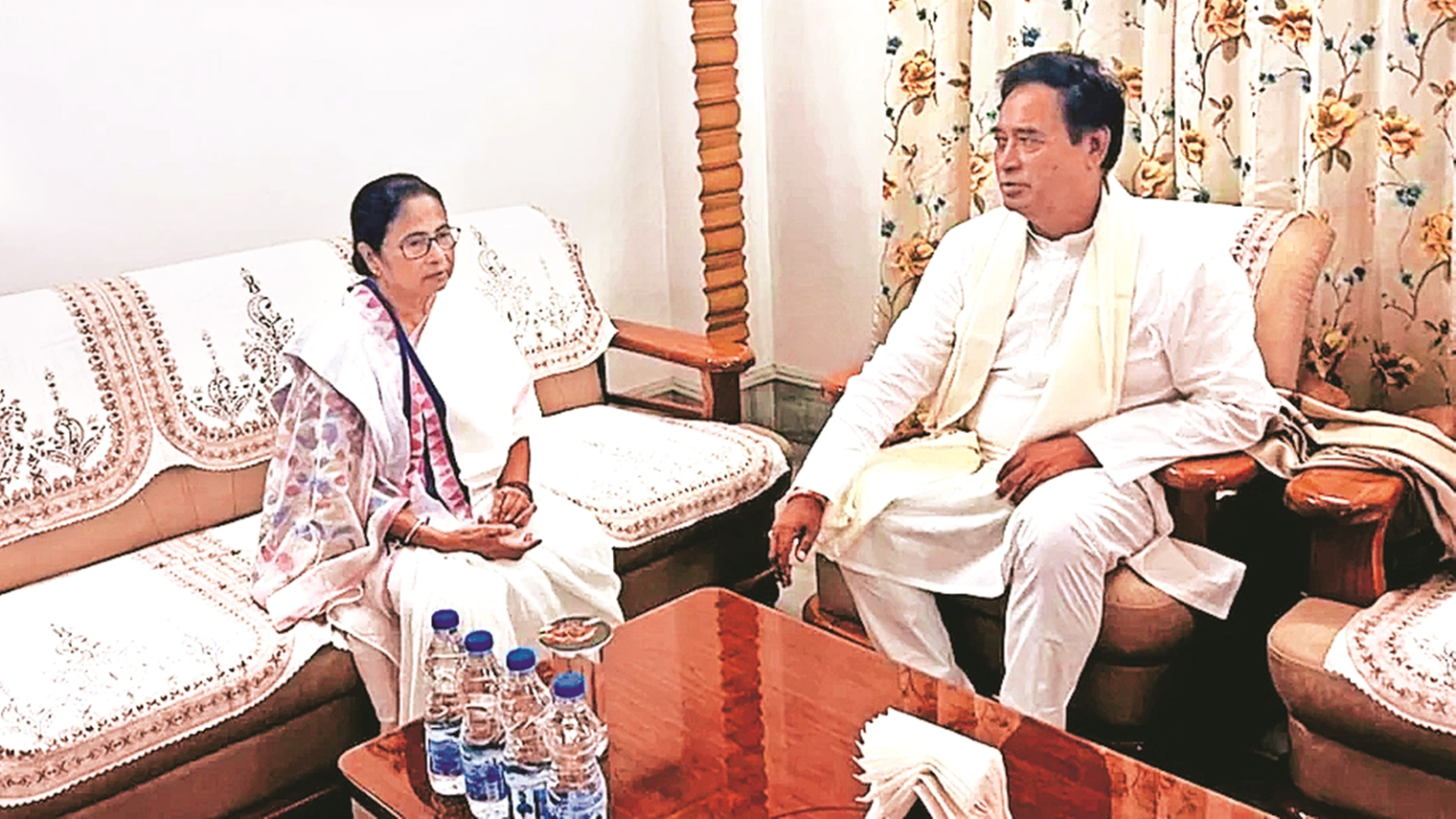In a politically significant move, West Bengal Chief Minister Mamata Banerjee recently held a meeting with BJP’s Rajya Sabha MP Ananta Maharaj. This outreach is a part of the Trinamool Congress (TMC)’s broader strategy to strengthen ties with the influential Rajbanshi community in North Bengal, a region where the BJP has made notable electoral gains in recent years.
The Political Landscape of North Bengal
North Bengal has been a battleground for political influence, with the Rajbanshi community playing a pivotal role in determining electoral outcomes. The community has substantial influence and has historically expressed concerns over economic development, cultural recognition, and political representation. These issues have made the Rajbanshis a critical demographic for both the TMC and the BJP.
Objectives Behind the Meeting
1. Community Outreach and Grievance Redressal
The meeting with Ananta Maharaj, a prominent Rajbanshi leader, underscores Mamata Banerjee’s commitment to addressing the specific grievances of this group. By directly engaging with community leaders, the TMC aims to understand and address their concerns more effectively. This approach fosters a sense of inclusion and support, which is crucial for the TMC’s political strategy.
2. Countering BJP’s Influence
In recent elections, the BJP has successfully garnered support from the Rajbanshi community, contributing to their growing influence in North Bengal. Mamata Banerjee’s outreach to Ananta Maharaj is seen as a strategic countermeasure to dilute the BJP’s hold and reclaim the support of this key demographic. By engaging with a BJP MP, Mamata is signaling her willingness to bridge divides and address the needs of the Rajbanshis directly.
3. Strengthening Political Base
For the TMC, strengthening its base in North Bengal is crucial. The region has posed challenges for the party, and consolidating support here is essential for their broader electoral strategy. By engaging with influential community leaders, the TMC hopes to rebuild and reinforce its presence in the region. This move is part of a larger effort to consolidate the party’s political base and ensure stability in upcoming elections.
4. Preparing for Upcoming Elections
With upcoming elections on the horizon, the TMC is keenly aware of the need to secure a robust voter base in North Bengal. The engagement with Ananta Maharaj is part of a concerted effort to ensure electoral success by addressing the needs and aspirations of the Rajbanshi community. By focusing on this community, the TMC is positioning itself to garner significant support in a key battleground area.
The Significance of Ananta Maharaj
Ananta Maharaj, a prominent leader within the Rajbanshi community, has significant influence and is considered a key figure in the political landscape of North Bengal. His alignment with the BJP has been instrumental in the party’s recent successes in the region. By meeting with him, Mamata Banerjee is not only addressing the community’s concerns but also attempting to bridge political divides and create a more inclusive political environment.
The Broader Political Strategy
This meeting is indicative of the TMC’s adaptive and inclusive political strategy. By addressing community-specific issues and engaging with influential leaders, the TMC aims to create a more cohesive and supportive voter base. This approach not only counters the BJP’s influence but also demonstrates Mamata Banerjee’s commitment to inclusive governance and community engagement.
1. Addressing Economic and Developmental Concerns
One of the key issues for the Rajbanshi community has been the lack of economic development and infrastructure in their regions. By engaging with Ananta Maharaj, the TMC is signaling its commitment to addressing these concerns. Initiatives aimed at improving economic opportunities, infrastructure, and access to essential services are likely to be key components of this strategy.
2. Cultural Recognition and Representation
The Rajbanshi community has long sought greater cultural recognition and political representation. The TMC’s engagement with Ananta Maharaj can be seen as an effort to address these issues by ensuring that the community’s cultural heritage is respected and preserved. Additionally, the TMC may look to increase the political representation of Rajbanshis within the party and government structures.
3. Political Consolidation and Stability
The TMC’s broader strategy involves consolidating its political base and ensuring stability in regions where it has faced challenges. By engaging with key community leaders and addressing specific grievances, the TMC aims to create a more stable and supportive political environment. This strategy is essential for maintaining political dominance and achieving long-term electoral success.
Conclusion
Mamata Banerjee’s meeting with Ananta Maharaj marks a significant step in the TMC’s efforts to strengthen ties with the Rajbanshi community and regain lost ground in North Bengal. This strategic outreach reflects the party’s broader objectives of inclusive development, political consolidation, and electoral success. As the political landscape evolves, such engagements will likely play a crucial role in shaping the future of North Bengal’s political dynamics.
By addressing the concerns of the Rajbanshi community and engaging with influential leaders like Ananta Maharaj, the TMC is positioning itself to counter the BJP’s influence and secure a stronger foothold in North Bengal. This move demonstrates Mamata Banerjee’s commitment to inclusive governance and her ability to adapt to changing political landscapes. The success of this strategy will be closely watched as the TMC prepares for upcoming elections and seeks to consolidate its position in one of West Bengal’s most politically significant regions.

1 Comment
Pingback: TMC, Congress Reconcile Ahead of Parliament Session 1